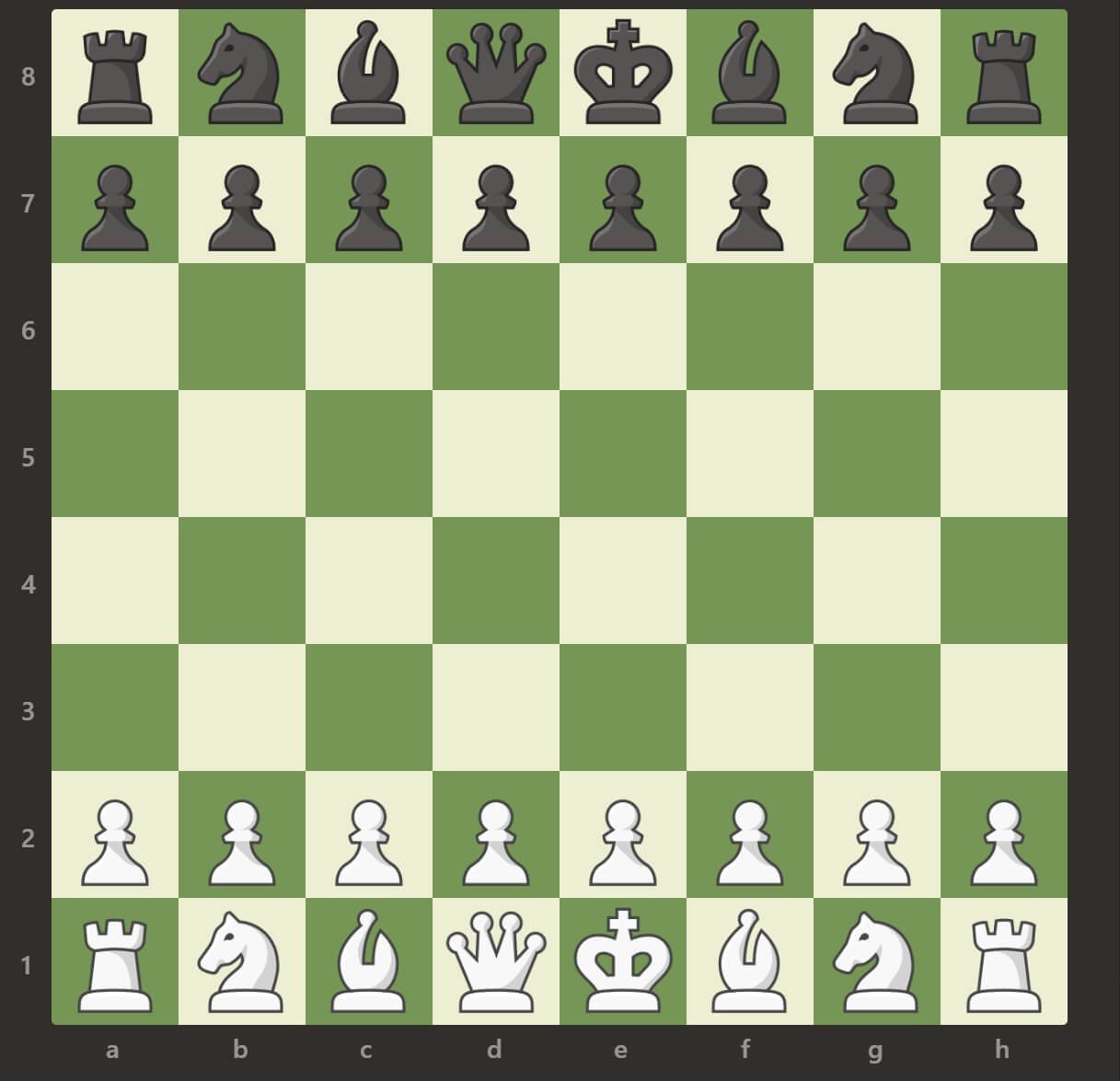Xiangqi vs Chess: Comparing the Ancient Chinese Chess Game to Western Chess
Authors:
David Kwan (Experienced Xiangqi Coach)
Joep Nabuurs (European Xiangqi Grandmaster and Chess Veteran)
Chess has long been one of the world's most beloved strategy board games, with millions of devoted players worldwide. But in China and surrounding regions, there is a Chinese game like chess that offers similar gameplay with its unique characteristics - Xiangqi.
Like chess, xiangqi (pronounced "shang-chee") is a two-player, turn-based game played on a checkered game board. But beyond the surface, there are also many unique differences that give xiangqi its own fresh, exciting appeal for strategy gamers.
This article will dive into the key similarities and differences between Chinese chess (xiangqi) and the classic Western game of chess. Understanding these contrasts will unveil why chess enthusiasts should also give the ancient game of xiangqi a try.
The article will be divided into the following sections:
An Introduction to Xiangqi
To start, let's briefly introduce xiangqi for those unfamiliar with this traditional Chinese board game.
History and Origins
Xiangqi is believed to have originated in China around 2000 years ago, making it one of the oldest strategy board games still widely played today. The game evolved over the centuries, reaching its current form by the mid-10th century AD.
Xiangqi was traditionally played on dirt or stone boards, and pieces were commonly carved from ivory or jade. Today, xiangqi is enjoyed in Chinese and Vietnamese communities worldwide. There are professional Xiangqi players in China and Vietnam who play at the highest levels, similar to professional chess grandmasters.
Gameplay
The pieces and the starting setup of a xiangqi game
The xiangqi rules are similar to chess in that players take turns moving one piece at a time, trying to checkmate the opponent's General. However, unlike stalemate is a draw in chess, stalemating the opponent is considered a victory in Xiangqi.
Xiangqi is played on a 9x10 square grid board. Unlike the chess board, the xiangqi board has a river (often marked by a visual divider) running down the middle between the two opposing sides in red and black, and a palace restricting the movement of the general and advisors.
The pieces include:
1 General (King)
2 Advisors (Guards)
2 Elephants (Bishops)
2 Horses (Knights)
2 Chariots (Rooks)
2 Cannons
5 Soldiers (Pawns)
The pieces move in unique ways, with some similarities to chess pieces. For example, the Chariot moves in orthogonally just like the chess Rook.
You can learn more about the Xiangqi board and pieces in How to Start and Pieces and Moves.
Similarities Between Xiangqi and Chess
At their hearts, xiangqi and chess share many high-level similarities that will feel familiar to new xiangqi players with chess experience. Let's examine some of these parallels:
The movement of the horse is similar to that of the knight in chess
Both are two-player, turn-based, strategic board games with the goal of checkmating the opponent's King piece.
Certain pieces like the Rook and Knight move similarly in both games.
Both games share concepts like opening, midgame, and endgame phases. Controlling key positions and seizing tactical opportunities also play key roles in the strategies of both games.
Tactics like forks, pins, discovered attacks, skewers, and more exist in both games.
These core strategic concepts and approaches transfer well between experienced chess players learning the game of xiangqi for the first time. The basic principles of controlling space, restricting the opponent's pieces, attacking weaknesses, defending your own assets, and seizing opportunities through tactical operations remain fundamentally similar.
However, there are also very notable differences that give xiangqi its own unique flavor compared to Western chess, as we shall see next.
Key Differences Between Xiangqi and Chess
While xiangqi will feel familiar in many ways to chess players at first, key differences quickly emerge that greatly impact gameplay, strategy, and tactics compared to the Western game.
It is Easier to Attack in Xiangqi
One major difference between xiangqi vs chess is that attacking the enemy position is significantly easier and happens faster in xiangqi. There are a few reasons why:
The xiangqi board starts fully open, unlike chess where pawns block much of the board early on. This enables immediate attacks across the board from the opening moves.
Far fewer pieces - especially defensive pawns - get in the way of the main attacking pieces' progress toward the enemy general (king). The lack of obstructions enables direct threat very quickly.
Powerful pieces like the Rook and Cannon can control the crucial central files without trouble early in xiangqi, creating instant pressure.
There is less open space on the chess board
There is more open space on the xiangqi board
Xiangqi has more emphasis on position
While material advantage is crucial in chess, having better piece activity and board position often trumps material in xiangqi. It is because, in chess, being a pawn down without compensation can spell a slow doom. The same goes for having one misplaced or passive piece. In xiangqi, having just a few pieces attacking makes you so dangerous that you care less about passive or even captures pieces. For example, it is really common losing a soldier (pawn) to gain tempo and a better position in xiangqi openings. Sometimes, players won’t even spend a move to take a free soldier.
Furthermore, even when down substantial material, certain endgame positions are draws as long as the defender has a good position. This reduced emphasis on material count creates exciting attacking chances.
In this example, red is up a chariot(rook) and black has no attacking pieces. Although red has a significant material advantage, the black pieces are in good position to defend the general. This would result in a draw.
In this example, the pieces of the both sides are the same as the last one. However, the black pieces are not in a good position this time. Red can defeat black if he knows how to exploit the positional weakness of black!
Xiangqi’s Position is more dynamic than chess
In this intense xiangqi game, both red and black are having some serious attacking threats towards the opponent’s general
In chess, losing one unprotected piece can be game-losing if your opponent capitalizes well. So chess emphasizes a lot on pawn structure and won’t change the pawn structure easily to avoid creating weaknesses.
Pawn structure plays a tiny role in Xiangqi compared to chess, especially in the opening and middle game. Though connecting the soldiers are also seen as a nice thing to do in xiangqi, it is hard to connect them due to their fewer numbers and positions. The result is more fluid, dynamic tactical play in xiangqi.
Draws are Less Common
With special rules preventing endless cyclical checks or piece trappings, draws naturally occur less often in top-level xiangqi compared to top-level chess. Also, stalemate is a loss for the stalemated player in xiangqi, unlike the draw it causes in chess. This creates relentless fighting until the end.
Red can win by stalemate in this example
Why Chess Players Should Try Xiangqi
Given these contrasts, what compelling reasons are there for experienced chess players to try learning the ancient game of xiangqi?
Exciting and Tactical Gameplay
Due to the open nature of the starting position and reduced material blocking activity, xiangqi is extremely tactical, with possibilities for creative attacks from the opening moves onwards. This game features more direct attacking and complex tactical skirmishes compared to the slow positional beginnings of many chess games. This dynamic and fluid play style is a refreshing change of pace.
With fewer pawns and more space on the board, a small strike force can launch an offensive quickly. The lack of fixed pawn structures means the board position transforms rapidly. The quick and sharp clashes make every turn exciting.
Dynamic position
One of the reasons why Xiangqi is a more dynamic game than chess is that players do not have to wait for a long time before the pawn line opens up to start a fight. Players can initiate a strong offensive with just a small group of pieces from the beginning of the game.
Also, in xiangqi, with fewer blockades, the options are much more diverse. This is in sharp contrast to chess, where sometimes it can be very predictable as to what both players should be aiming for. It adds to the excitement and unpredictability of the Chinese Chess game.
Gain Appreciation of Chinese Culture
Finally, taking up this ancient Chinese game opens up an appreciation for broader Chinese culture. Xiangqi offers a small glimpse into historic Chinese strategic thinking. The philosophical wisdom embedded in classic games like xiangqi reveals much about historic Chinese culture.
Conclusion
While chess and xiangqi share some concepts, xiangqi's uniquenesses, such as its open board, tremendous amounts of tactical opportunities, fluid formations, and dynamic reversals give it a distinctly aggressive and offensively-oriented gameplay experience, that makes it a great alternative to chess.
If you enjoy chess but want a chess alternative with more direct attacking opportunities and exciting tactical play, xiangqi is worth learning. It can also expand your knowledge and appreciation of Chinese culture. And best of all, xiangqi gives you a fresh set of challenges to test and improve your tactical and strategic abilities.
So why not learn more about xiangqi today and expand your strategic skills by taking on the ancient game of Chinese chess? Register for a free account on Xiangqi.com to start playing this classic game!
FAQ
Question: What is the game similar to chess?
Answer: Xiangqi, also known as Chinese chess, is an ancient Chinese board game that is similar to chess. Like chess, xiangqi is a two-player, turn-based strategic game played on a checkered game board. The goal is to checkmate your opponent's General piece. It is being considered one of the best chess alternatives.
Question: Where to play game like chess online?
Answer: You can play xiangqi online by signing up for a free account on Xiangqi.com. This website allows you to challenge opponents and play the classic Chinese game of xiangqi, which has similarities to chess but also some unique differences. Xiangqi.com provides the tools to play xiangqi online against other players across the world.
Question: Is xiangqi more complicated than chess?
Answer: Xiangqi has slightly different rules and piece movements, but the complexity is comparable to chess. Once you learn the unique pieces like the Cannon, the game is no more complicated than chess.
Question: Is xiangqi (chinese chess) a better game than chess?
Answer: It can be challenging to measure which game is better, and transitioning from one game to another can present interesting challenges. For instance, chess players may find it relatively easy to adapt to xiangqi tactics, but they may struggle with the unique movement of the cannon piece. Additionally, they may feel time pressure during the opening phase of the game since there are numerous opportunities to grab space. On the other hand, a player who excels in sharp tactical play may find their style pays off more frequently in xiangqi. Overall, transitioning between games can be both exciting and challenging, and players will need to adapt their strategies and skills accordingly.
Question: Can chess strategies be used in xiangqi (chinese chess)?
Answer: Some strategic concepts like controlling key positions and king safety apply to both games. But chess strategies based around pawn structure and slow build-ups do not work as well in xiangqi's dynamic setting.









